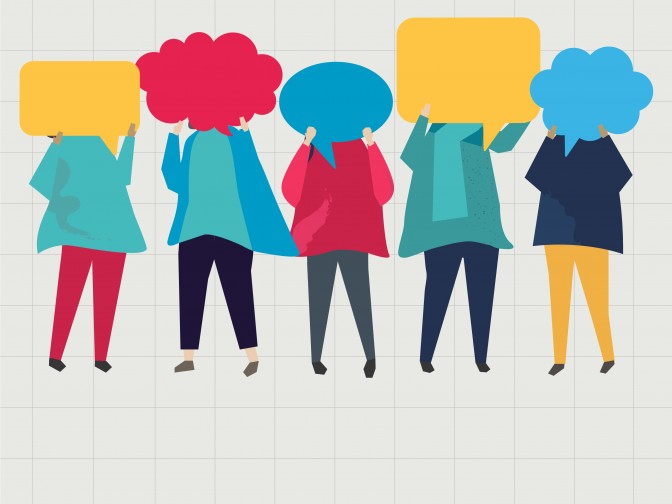The business language here at The Workshop is English. Inventors communicate with colleagues and clients in English, and they even think and dream in English. Therefore, for most of our Inventors, learning a second or third language is not a “weird” thing. After all, if one can “speak and understand” those computer languages, which can seem really strange for ordinary mortals, you are ready to speak another language!
“Yes, OK. I can speak English but learning another language is impossible for me.”
Well, that’s not true. Or not totally true.
Many Inventors here are now learning Spanish. Their reasons for doing so range from the fact that they do not want to live in isolation in Málaga, to the fact that they want to open up their cultural horizons, get to know another culture or settle down to live in Spain. Whatever the reason, they are making a great effort to learn Spanish, and most importantly, to integrate into a culture that is not their own.
If they can do it, so can you!
As a long-time ELE (Spanish as a foreign language) teacher, I can say without fear of error, that everyone can learn another language. Of course, that requires some effort and dedication, but the most important thing to start with is that you know what your motivations are for learning and your way of learning. Learning is a mixture of “brain and will”.
Brain and will, you said? That’s correct. Let me explain it to you.
Your brain
Have you ever stopped to think about why some people find it so hard to speak Spanish and others speak it with great ease?
“Yes. It’s because they are bright and I’m not”
Well, believe me that is NOT the point. The answer is your brain, and the brain has nothing to do with you thinking you are less smart than everyone else.
In a recent experiment conducted at McGill University, in Montreal, Canada, the brains of 12 students were scanned before and after following a 12-week French language course. The researchers found that among the students who had better results, there were stronger connections between the nerve centres.
Psycholinguistics
Another important point to keep in mind, as psycholinguistics teaches us, is that our brain is not indifferent to linguistic similarities. That means that when faced with a language that has similar grammatical and vocabulary characteristics, the student will use those similarities to make sense of the new language he or she is studying. As a Spanish teacher I can say that this happens very often, for example with Romanian or Bulgarian students, whose mother tongue has many similarities to Spanish. Or it happens also with Polish students, whose way of learning is based on the conscientious study of the grammar, which although the grammar of Polish is different from Spanish, it has familiar similarities for these students.
Those results could mean that some people are better cognitively prepared to learn languages or their native language could help them to get a new one, but that does not mean that not everyone can try. And yes, I encourage you to do so.
How do we learn?
Regardless of our brain, the next question is how do we learn.
Classes at the end of the work day, apps, talking with a Spanish colleague at work, following the Spanish classes that The Workshop offers to its Inventors…. We have many ways to learn a new language.
Nevertheless, well, we are adults, and we must behave like adults. That means that we cannot learn intuitively, like a child who follows the native adult who takes care of him or her all day long. Our adult brains are more sophisticated, and our reasoning interferes with how we learn.
Throughout my years as a teacher, I have seen, many times, students trying to learn a language not always correctly, putting the focus on “knowing” a lot of words, but they do not know how those words interact together to create a grammatically correct sentence.
An MIT study tells us that as adults, we try to learn a language as if it were data. That means we try to learn a language the same way we learn, for example, history. In a history class, we learn the facts in a chronological way, using dates as data. Moreover, that does not work in learning a language. As adults, we tend to overanalyse knowledge, and that makes us lose the ability to appreciate the different and wonderful nuances of a language.
“Then how should I deal with learning Spanish, for example?”
I recognise that learning a new language, as an adult, will never be without its difficulties, but nothing worthwhile is, right? But you can do a lot to learn it. Yes, you can!
Here are some tips that you should keep in mind.
- Know yourself and know your goals. Why do you want to learn Spanish, for example? For your job? To communicate with your Spanish partner’s family? To travel around Argentina? Depending on your objective, this is how the Spanish you want to learn will be, discarding any vocabulary that is not useful for your objectives.
- Learning is not incompatible with fun, and fun is motivation. Ok, let’s go. Maybe it is not enough just your regular Spanish class. Then, find an activity you like, and do it in Spanish. What about a yoga class in Spanish, or dancing tango with Argentinians? For sure, there are many activities in Spanish near you. Open your mind, enjoy diversity and find new friends, and maybe….. your lover! But, be careful. If your partner is a Spaniard, it does not mean you are going to learn a lot. From my experience, it happens rarely, it does not work with the family!
- Two for one. You know English. Well, take advantage of that and try a second language. Okay, it might be easier if your native language is Portuguese, Italian, and Romanian… but that does not matter. If your will is strong, your interest is great and your mind is open, you have the power to learn and SPEAK Spanish too, whatever your mother tongue is. Do you know that your brain becomes more expansive, more ductile, if you speak a second language?
- Dive in. Listen to music in Spanish (there is more music in Spanish than bachata or reggaeton!). Listen to podcasts, watch Spanish series or subtitled ones, documentaries, read the news in Spanish…
- Remember – you are learning a skill, not data. Enjoy the embarrassing moments; do not be afraid of failure or ridicule. Assume that your accent is not perfect and that you do not understand everything. None of that is important in the long run… What is important is your commitment!
So, try it, go for it, it’s worth it!!!



